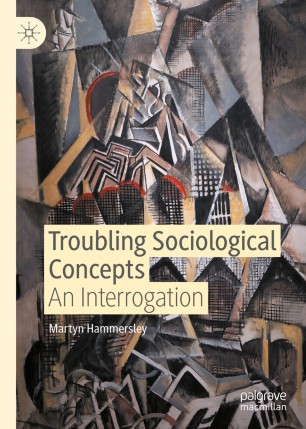

Most ebook files are in PDF format, so you can easily read them using various software such as Foxit Reader or directly on the Google Chrome browser.
Some ebook files are released by publishers in other formats such as .awz, .mobi, .epub, .fb2, etc. You may need to install specific software to read these formats on mobile/PC, such as Calibre.
Please read the tutorial at this link: https://ebookbell.com/faq
We offer FREE conversion to the popular formats you request; however, this may take some time. Therefore, right after payment, please email us, and we will try to provide the service as quickly as possible.
For some exceptional file formats or broken links (if any), please refrain from opening any disputes. Instead, email us first, and we will try to assist within a maximum of 6 hours.
EbookBell Team

5.0
68 reviewsSociology addresses challenging social issues and seeks new ways to understand them. However, much sociological terminology suffers from multiple, vague, or uncertain meanings. This is true of many of the central terms that sociologists use, such as ‘power’, ‘ideology’, ‘culture’, ‘social class’, and even ‘society’. The result is that the conclusions reached by sociological investigations are frequently subject to discrepant interpretations, and their validity is difficult to assess. The chapters in this book address several of the key terms employed by sociologists, examining the concepts associated with them in depth – from both an historical and an analytical perspective. The aim is not to develop an entirely new framework but rather to document the various meanings associated with these terms, and to suggest ways in which they could be refined or developed for the purposes of sociological analysis. Since the concepts addressed are of wide relevance, Troubling Sociological Concepts will be of interest and use to researchers and students across the social sciences.